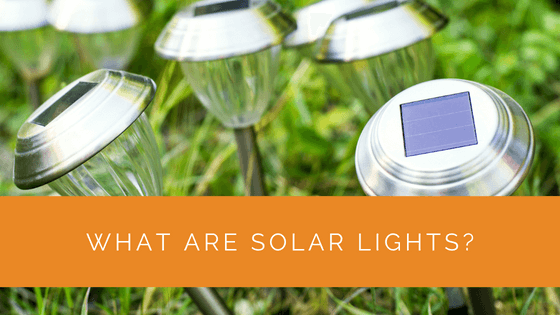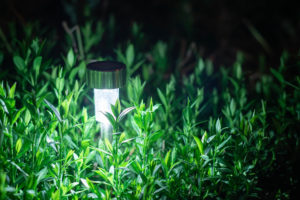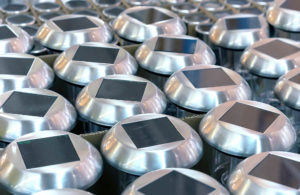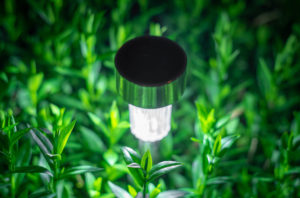Solar lights are an innovative and widely-used method of providing top-notch outdoor lighting, especially during the warmer and sunnier seasons. They are budget-friendly, require minimal maintenance, and can be easily set up by anyone without incurring any additional costs. Furthermore, they add an appealing aesthetic value while fulfilling practical purposes. Their overall performance is comparable to that of traditional incandescent lights, serving both functional and decorative roles while enhancing home security. Contents Solar lights derive their energy from the sun during the day and emit light once it becomes dark. Unlike conventional lights, they do not depend on the home's electrical wiring, making them independent and self-sufficient. Solar lights consist of several components: Let's take a closer look at each component. The solar panel's photovoltaic (PV) cells allow it to be small yet efficient. These cells contain light-sensitive materials that convert sunlight into a small amount of usable electricity. While direct sunlight is ideal, the panel can still generate power even when the sun isn't directly overhead. LED solar lights are compact and durable, lasting much longer than traditional bulbs. Their energy-efficient design and bright illumination make them ideal for nighttime use. The light sensor in solar lights is technically known as a photoresistor. It detects the absence of light and triggers the solar lights to turn on at night and off during the day. Additionally, this sensor often includes a voltage regulator, preventing batteries from overcharging even under prolonged or intense sunlight. Although a light sensor is present, some models come with an additional manual switch. This allows users to manually control the lights, especially when switching to battery power might be preferable. The possibilities for solar lighting applications are endless, limited only by creativity and personal preference. The two primary categories include: Solar fairy lights or garden lights can be installed permanently or temporarily to accent patios and surrounding areas. Most solar lights are designed to illuminate pathways, serving both a decorative and safety function. Additionally, solar-powered streetlights can be mounted at higher elevations to enhance visibility in specific areas. Solar lights can also be used for both outdoor and indoor security lighting. While more LEDs may seem better, it's important to choose the appropriate number based on the intended application. More LEDs require higher energy consumption. Selecting the right LED configuration for the location and operational hours is crucial. Consulting a reputable solar light distributor can help determine the best fit for your needs. Solar lights are built to withstand wet and even icy conditions, making them reliable outdoor lighting options regardless of the weather. Some advanced solar lights are designed to work efficiently even in complete darkness. These winter-friendly solar lights are pricier than standard models but offer superior performance in regions with shorter daylight hours, longer nights, and limited sunlight. A UK homeowner sought to upgrade their garden and outdoor areas with solar lighting to improve both aesthetics and safety. The goal was to install lights that would illuminate pathways and highlight key garden features while staying environmentally friendly and cost-conscious. The project involved installing various types of solar lights around the garden, focusing on enhancing nighttime visibility and creating a welcoming ambiance. The homeowner aimed to avoid the complexities of traditional wiring and high electricity costs. The Solar Panels Network successfully transformed the homeowner’s garden with solar lighting, achieving both aesthetic and practical goals. The project demonstrated the versatility and efficiency of solar lights, offering a sustainable and cost-effective solution for outdoor lighting needs. Solar lights are an excellent way to add illumination to outdoor spaces without incurring extra energy costs. They are easy to install and maintain, making them accessible to all types of homeowners. Senior Solar Installation Specialist The versatility of solar lights is one of their greatest strengths. Whether you're looking to enhance the safety of your pathways or add a decorative touch to your garden, they offer a practical and visually appealing option. Outdoor Lighting Consultant Modern solar lights, especially those equipped with LED technology, provide exceptional brightness and longevity. They are an excellent way to enhance the security of your property while being both eco-friendly and cost-effective. Renewable Energy Consultant At Solar Panels Network, we are dedicated to providing valuable information and support regarding solar lighting. With years of experience in delivering high-quality solar installations and maintenance, our team of experts is ready to assist you in finding the right lighting solution for your needs. Whether you're looking to improve your outdoor spaces, conserve energy, or adopt a more sustainable approach, we're here to help. Feel free to reach out with any questions or inquiries. Selecting the right solar lighting for your home might seem daunting, but reviewing the information provided here should give you a clear understanding of how solar lights work and their potential benefits. Solar panels are a reliable long-term investment, environmentally friendly due to their ability to reduce carbon footprints and provide renewable energy. Combined with low electricity bills, photovoltaic cells are a worthwhile investment. Solar Panels Network leads the way in solar energy solutions, driven by a team of seasoned solar engineers and energy consultants. With decades of experience in delivering high-quality solar installations and maintenance, we are committed to promoting sustainable energy through customer-centric, tailored solutions. Our articles reflect this commitment, crafted collaboratively by experts to provide accurate, up-to-date insights into solar technology, empowering our readers to make informed solar energy decisions. quartz sand,quartz and sand,quartzose sand,high purity quartz sand,silica quartz sand JAR HING PRODUCTS.,LTD , https://www.jarhingproducts.com
Key Takeaways
How Do Solar Lights Work?
The Solar Panel

LED Lighting
Light Sensor

Switch (On/Off)
Advantages of Solar-Powered Lights
Common Uses for Solar Lights
Solar Decorative Lights
Solar Lights for Security and Safety

Additional Considerations for Solar Lighting
The Number of LEDs
Solar Lights in Stormy Weather
Winter-Specific Solar Lighting
Case Study: Enhancing Outdoor Spaces with Solar Lights
Background
Project Overview
Implementation
Results
Summary
Expert Insights from Our Solar Panel Installers on Solar Lights
Our Expertise in Solar Lights
Conclusion
About the Author
Quartz sand is a quartz particle formed by crushing and processing quartz stone. Quartz is a non-metallic mineral, which is a hard, wear-resistant, and chemically stable silicate mineral. The color of quartz sand is milky white or colorless and semi transparent, with a Mohs hardness of 7.
Quartz sand is an important industrial mineral raw material, not a chemical hazardous material, widely used in industries such as glass, casting, ceramics and fireproof materials, smelting of ferrosilicon, metallurgical flux, metallurgy, construction, chemical industry, plastics, rubber, abrasives, filter materials, etc.